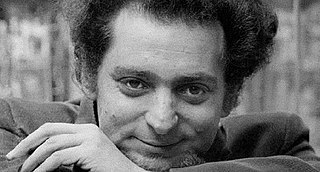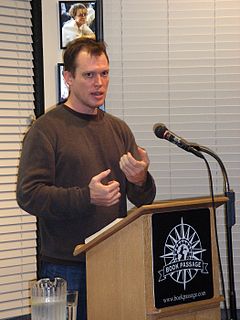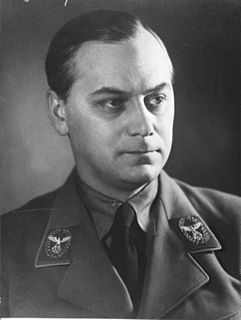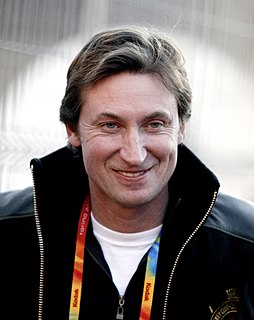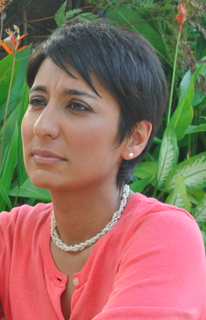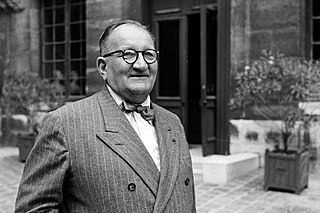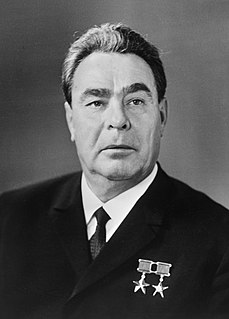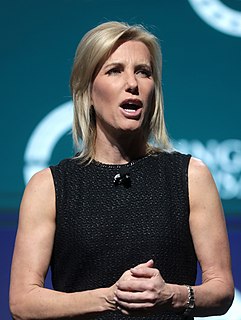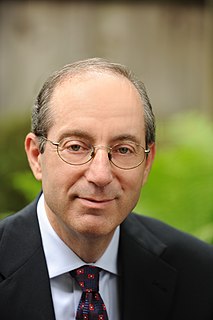Top 1200 Rhetorical Question Quotes & Sayings - Page 16
Explore popular Rhetorical Question quotes.
Last updated on December 23, 2024.
If a guy were dating my daughter but didn't want to spend the gas money to come pick her up or refused to buy her dinner because it cost too much, I would question whether he were really in love with her In the same way, I question whether many American churchgoers are really in love with God because they are so hesitant to do anything for Him." Crazy Love: Overwhelmed by a Relentless God
What we need to question is bricks, concrete, glass, our table manners, our utensils, our tools, the way we spend our time, our rhythms. To question that which seems to have ceased forever to astonish us. We live, true, we breathe, true; we walk, we go downstairs, we sit at a table in order to eat, we lie down on a bed on order to sleep. How? Where? When? Why? Describe your street. Describe another. Compare.
Thus, the question of how and when to start vagabonding is not really a question at all. Vagabonding starts now. Even if the practical reality of travel is still months or years away, vagabonding begins the moment you stop making excuses, start saving money, and begin to look at maps with the narcotic tingle of possibility. From here, the reality of vagabonding comes into sharper focus as you adjust your worldview and begin to embrace the exhilarating uncertainty that true travel promises.
The anonymity issue is a big question. As long as people can disguise cyber attacks and as long as there is a sort of question mark over who is responsible, then the problem will continue to exist. And of course what happens in response to that is that there is a move to try and refashion the Internet so that anonymity is impossible, which of course leads to fears among all sorts of groups - civil rights groups, NGOs, and political parties - that the Internet is going to be used simply as a method of control. So these are very sensitive issues.
I think the Resurrection continues to be a pivotal issue, a pivotal question for people. I think a lot of other issues have been raised in interim years, about the nature of truth, of course gender issues, issues involving social matters like abortion and euthanasia and so forth, those swirl about and change from time to time, but I think the fundamental question of whether or not Christianity is true ultimately goes back to the Resurrection.
We try to evade the question of existence with property, prestige, power, possession, production, fun, and, ultimately, by trying to forget that we- that I- exist. No matter how much he thinks of God or goes to church, or how much he believes in religious ideas , if he, the whole man, is deaf to the question of existence, if he does not have an answer to it, he is marking time, and he lives and dies like one of the million things he produces. He thinks of God, instead of experiencing God.
I remember sitting in this pool hall with Stone and Chris and we watched - this really old, really classic pool hall - and we were sitting there and it was really rainy out and George Bush came on and started telling us about the [Gulf] war and that we were going and, and the whole thing, and there's part of that in it, when we talk about "I don't question our exsistence / I just question, our modern needs.
How prone we are to come to the consideration of every question with heads and hearts pre-occupied! How prone to shrink from any opinion, however reasonable, if it be opposed to any, however unreasonable, of our own! How disposed are we to judge, in anger, those who call upon us to think, and encourage us to enquire! To question our prejudices seems nothing less than sacrilege; to break the chains of our ignorance, nothing short of impiety!
Some people think that evolutionary psychology claims to have discovered that human nature is selfish and wicked. But they are flattering the researchers and anyone who would claim to have discovered the opposite. No one needs a scientist to measure whether humans are prone to knavery. The question has been answered in the history books, the newspapers, the ethnographic record, and the letters to Ann Landers. But people treat it like an open question, as if someday science might discover that it's all a bad dream and we will wake up to find that it is human nature to love one another.
The question of place and climate is most closely related to the question of nutrition. Nobody is free to live everywhere; and whoever has to solve great problems that challenge all his strength actually has a very restricted choice in this matter. The influence of climate on our metabolism, its retardation, its acceleration, goes so far that a mistaken choice of place and climate can not only estrange a man from his task but can actually keep it from him: he never gets to see it.
Plays are literature: the word, the idea. Film is much more like the form in which we dream - in action and images (Television is furniture). I think a great play can only be a play. It fits the stage better than it fits the screen. Some stories insist on being film, can't be contained on stage. In the end, all writing serves to answer the same question: Why are we alive? And the form the question takes - play, film, novel - is dictated, I suppose, by whether its story is driven by character or place.
But in my mind, I don't think there's any question Sidney Crosby is the best all-around player in the game. His hockey sense is so strong and so solid, combined with his God-gifted talent of being able to see the ice, see the entire picture in front of him. And, most importantly, I don't care how good you are, if you don't have a work ethic, it doesn't matter. There's no question that each and every game, he's one of the hardest-working guys on the ice. In my mind, he's the best player in the game today.
Religion is all based on the mentality of "I'm right", but now today it's moved from even the question of "I'm right and I'm willing to tolerate those who agree that I am right or those who don't disturb me anyway". Now, it's a question of "If you do not accept that I'm right, I have a right to kill you". That is the mentality of religious fundamentalism today. That is the meaning of the kind of terror which we are witnessing today, that everybody is expendable who do not actually physically line up behind me.
And uh, so, I'm running for a reason. I'm answering this question here and the answer is, you cannot lead America to a positive tomorrow with revenge on one's mind. Revenge is so incredibly negative. And so to answer your question, I'm going to win because people sense my heart, know my sense of optimism and know where I want to lead the country. And I tease people by saying, "A leader, you can't say, follow me the world is going to be worse." I'm an optimistic person. I'm an inherently content person.
Of course, to avoid getting stuck in that convo with someone you dislike or feel uncomfortable around, don't be passive, be proactive. Do not let them direct your interaction on their terms, do it on yours. Ask a Misdirection Question--something too difficult to answer quickly--e.g., 'What's Congress up to?' or 'You ever learn any cool science?' When you ask the question, don't make eye contact, keep moving and get out of there. Do not wait for a response and deny ever asking it. Repeat these actions until you are never again spoken to by that individual (about four times).
I think I have fallen in love and I believe the woman in question, though she has not said so, returns my feelings. How can I be sure when she has said nothing? Is this youthful vanity? I wish in some ways that it were. But I am so convinced that I barely need question myself. This conviction brings me no joy.[…]I am driven by a greater force than I can resist. I believe that force has its own reason and its own morality even if they may never be clear to me while I am alive.
Suppose there arise a dispute relative to some important question among us, should we not have recourse to the most ancient Churches with which the apostles held constant intercourse, and learn from them what is certain and clear in regard to the present question? For how should it be if the apostles themselves had not left us writings? Would it not be necessary, in that case, to follow the course of the tradition which they handed down to those to whom they did commit the Churches?
I'm asking Muslims in the West a very basic question: Will we remain spiritually infantile, caving to cultural pressures to clam up and conform, or will we mature into full-fledged citizens, defending the very pluralism that allows us to be in this part of the world in the first place? My question for non-Muslims is equally basic: Will you succumb to the intimidation of being called "racists," or will you finally challenge us Muslims to take responsibility for our role in what ails Islam?
Why are there organized beings? Why is there something rather than nothing? Here again, I fully understand a scientist who refuses to ask it. He is welcome to tell me that the question does not make sense. Scientifically speaking, it does not. Metaphysically speaking, however, it does. Science can account for many things in the world; it may some day account for all that which the world of phenomena actually is. But why anything at all is, or exists, science knows not, precisely because it cannot even ask the question.
If you are happy, you are happy; nobody asks you why you are happy. Yes, if you are miserable, a question is relevant. If you are miserable, somebody can ask why you are miserable, and the question is relevant - because misery is against nature, something wrong is happening. When you are happy, nobody asks you why you are happy, except for a few neurotics. There are such people; I cannot deny the possibility.
The question that faces every man born into this world is not what should be his purpose, which he should set about to achieve, but just what to do with life? The answer, that he should order his life so that he can find the greatest happiness in it, is more a practical question, similar to that of how a man should spend his weekend, then a metaphysical proposition as to what is the mystic purpose of his life in the scheme of the universe.
The more I find life to be a great design, the more I suspect it to be singular in existence; the more I suspect it to be singular, the more I feel it to be specific and personal; the more I feel it to be personal, the more I think of it to be a mere question; And the more I think of it to be a question, the less I understand the questioner.
I am somewhat uncertain whether there is a definite factual question as to whether natural language handles truth-value gaps. Nor am I even quite sure that there is a definite question of fact as to whether natural language should be evaluated by the minimal fixed point or another, given the choice of a scheme for handling gaps. We are not at the moment searching for the correct scheme.
We absolutely must leave room for doubt or there is no progress and there is no learning. There is no learning without having to pose a question. And a question requires doubt. People search for certainty. But there is no certainty. People are terrified — how can you live and not know? It is not odd at all. You only think you know, as a matter of fact. And most of your actions are based on incomplete knowledge and you really don’t know what it is all about, or what the purpose of the world is, or know a great deal of other things. It is possible to live and not know.
The only way that you can keep moving forward, finding other ways of expressing things about this increasingly complicated world that we live in, is by listening and observing not only to life around you but to the other people who are in the room. It's not about a sort of, you know, a sense that you have to be democratic about these things, it's a question of creativity that the process of making theatre is a collaborative process, and it is not in, it is not a question of, you know, I have no interest in paying lip service to it, for me it's absolutely fundamental.
Whence came I, whither go I? Science cannot tell us a word about why music delights us, of why and how an old song can move us to tears. Science is reticent too when it is a question of the great Unity – the One of Parmenides – of which we all somehow form part, to which we belong. The most popular name for it in our time is God – with a capital ‘G’. Whence come I and whither go I? That is the great unfathomable question, the same for every one of us. Science has no answer to it.
"Did God have a mother?" Children, when told that God made the heavens and the earth, innocently ask whether God had a mother. This deceptively simple question has stumped the elders of the church and embarrassed the finest theologians, precipitating some of the thorniest theological debates over the centuries. All the great religions have elaborate mythologies surrounding the divine act of Creation, but none of them adequately confronts the logical paradoxes inherent in the question that even children ask.
Someone killed my Mother and my Father and my Sister?" "Yes, someone did." "A Man?" "A Man." "Which means," said Bod, "you're asking the wrong question." Silas raised an eyebrow. "How so?" "Well," said Bod. "If I go outside in the world, the question isn't who will keep me safe from him?" "No?" "No. It's who will keep him safe from me?
This cell belongs to a brain, and it is my brain, the brain of me who is writing; and the cell in question, and within it the atom in question, is in charge of my writing, in a gigantic minuscule game which nobody has yet described. It is that which at this instant, issuing out of a labyrinthine tangle of yeses and nos, makes my hand run along a certain path on the paper, mark it with these volutes that are signs: a double snap, up and down, between two levels of energy, guides this hand of mine to impress on the paper this dot, here, this one.
Every time I asked a question, that magnificent teacher, instead of giving the answer, showed me how to find it. She taught me to organise my thoughts, to do research, to read and listen, to seek alternatives, to resolve old problems with new solutions, to argue logically. Above all, she taught me not to believe anything blindly, to doubt, and to question even what seemed irrefutably true, such as man's superiority over woman, or one race or social class over another.
Communists have always viewed the national question through the prism of the class struggle, believing that its solution has to be subordinated to the interests of the Revolution, to the interests of socialism. That is why Communists and all fighters for socialism believe that the main aspect of the national question is unification of the working people, regardless of their national origin, in the common struggle against every type of oppression, and for a new social system which rules out exploitation of the working people.
By thinking you cannot decide. It is not a question of deciding as a logical conclusion, it is a question of choiceless awareness. You need a mind without thoughts. In other words, you need a no-mind, just a pure silence, so you can see directly into things. And out of that clarity will come the choice on its own; you are not choosing. You will act just as a buddha acts. Your action will have beauty, your action will have truth, your action will have the fragrance of the divine. There is no need for you to choose.
At heart, Sussman was a theoretician. In another age, he might have been a Talmudic scholar. He had cultivated a Socratic method, zinging question after question at the reporters: Who moved over from Commerce to CRP with Stans? What about Mitchell's secretary? Why won't anybody say when Liddy went to the White House or who worked with him there? Mitchell and Stans both ran the budget committee, right? What does that tell you? Then Sussman would puff on his pipe, a satisfied grin on his face.
The "magic if" is a tool invented by Stanislavski, the father of acting craft, is to help an actor make appropriate choices. Essentially, the "magic if" refers to the answer to the question, "What would I do if I were this character in this situation?" Note that the question is not "What would I do if I were in this situation?" What you would do may be very different from what the character would do. Your job, based on your analysis of the script, the scene, and the given circumstances regarding the who of your character, is to decide what he or she would do.
When thinking about how to deploy kind of professional and social networking into your business, it's really not a question of if, it's a question of when. And the reason is, just think about the fact that those businesses that adopt new technologies to operate efficiently and use them to get a competitive edge are the businesses that in fact, you know, it becomes one more competitive advantage. Whether it's a fax machine or a mobile phone or a new way of doing financing or any of these things, you know, these are key things to do.
It is all a question of sensitiveness. Brute force and overbearing may make a terrific effect. But in the end, that which lives by delicate sensitiveness. If it were a question of brute force, not a single human baby would survive for a fortnight. It is the grass of the field, most frail of all things, that supports all life all the time. But for the green grass, no empire would rise, no man would eat bread: for grain is grass; and Hercules or Napoleon or Henry Ford would alike be denied existence.
I dont see we can have a separation of church and state in this government if you have to pass a religious test to get in this government. And I want to warn everyone in the press and all the voters out there: if you demand expressions of religious faith from politicians, you are just begging to be lied to. They wont all lie to you but a lot of them will. And itll be the easiest lie they ever had to tell to get your votes. So every day till the end of this campaign, Ill answer any question anyone has on government, but if you have a question on religion, please, go to church.
I am interested in the political economy of institutional power relationships in transition. The question is one of "reconstructive" communities as a cultural, as well as a political, fact: how geographic communities are structured to move in the direction of the next vision, along with the question of how a larger system - given the power and cultural relationships - can move toward managing the connections between the developing communities. There are many, many hard questions here - including, obviously, ones related to ecological sustainability and climate change.
I always give the analogy of the Earth at Night picture, of 7.3 billion of us, right? And everyone says, "Well, that's population." Well, if you took the entire world's population and you lived at the density of Manhattan proper - not a bad place to live - how much space do 7.3 billion people take up? The state of Colorado. At which point I end my lectures, because I want you to be thinking ... is this really a question of population, or is this a question of land use and resource consumption? And let's face it, the top 1.3 billion of us are doing all the damage. Sorry.
Gorlog's teeth!" Erak exclaimed, stunned at the numbers. "How many are there?" "Ten thousand, maybe twelve," Halt replied briefly. The Skandian let out a low whistle. "Are you sure? How can you tell?" It wasn't a sensible question, but Erak was overwhelmed by the size of the horse herd and he asked the question more for something to say than for any other reason. Halt looked at him dryly. "It's an old calvary trick," he said. "You count the legs and divide by four.
The real question today is not when human life begins, but, what is the value of human life? The abortionist who reassembles the arms and legs of a tiny baby to make sure all its parts have been torn from its mother's body can hardly doubt whether it is a human being. The real question for him and for all of us is whether that tiny human life has a God-given right to be protected by the law - the same right we have.
So the main question is not, Which humans brought about the death of Jesus but, What did the death of Jesus bring about for humans - including Jews and Muslims and Buddhists and Hindus and nonreligious secularists - and all people everywhere?When it is all said and done, the most crucial question is: Why? Why did Christ suffer and die? Not why in the sense of cause, but why in the sense of purpose?
Women are afraid. It is unpopular to question the bible. They are creatures of tradition. They fear to question their position in the testament, as they feared to advocate suffrage fifty years ago. Now they are quarreling as to which were among the first to advocate it. You see they are not used to abuse as I am. In Albany, fifty years ago, when I went before the legislature to plead for a married woman's right to her own property, the women whom I met in society crossed the street rather than speak to me.
We know that Europe loves President Obama. He had adoring crowds. The press loves Obama. The question is how will this date end? Okay? The question is, to what end? Why do they love President Obama? They love his personal story, they love his wife. North Korea, China and Russia don't really care about Michelle's arms and, you know, whether they gave an iPod to the Queen, okay?
The whole question of pornography seems to me a question of secrecy. Without secrecy there would be no pornography. But secrecy and modesty are two utterly different things. Secrecy has always an element of fear in it, amounting very often to hate. Modesty is gentle and reserved. Today, modesty is thrown to the winds, even in the presence of the grey guardians. But secrecy is hugged, being a vice in itself. And the attitude of the grey ones is: Dear young ladies, you may abandon all modesty, so long as you hug your dirty little secret.
Why did John Wilkes Booth do it? In My Thoughts Be Bloody young historian Nora Titone is one of the few to have genuinely explored this question. In doing so, she has crafted a fascinating psychological drama about one of the central events of the Civil War: the assassination of Abraham Lincoln. This book promises to stimulate lively historical debate, and will be a treat for every Civil War buff who always pondered that haunting question, “what made him pull that trigger?” Bravo on a marvelous achievement.
Any country is hard to govern, even a very small country. It's not a question of whether the country is large or small. It's a question of how you relate to the work, to what extent you feel responsible for it. Russia is also hard to govern. Russia is at the development stage of both its political system and the creation of a market-based economy. It's a complicated process, but very interesting. Russia, actually, is not just a large country, it's a great country. I mean its traditions, and its cultural particularities.
I find Chinese debates about their political system domestically, but also about China's claims in the international system, to be among the most original and surprising and exciting of our time. The starting point is a system that none of us had anticipated, which I call Leninist capitalism, but also obviously because it is the most important emerging power. The question of China's relations with the United States in particular, and the rest of the world in general, is the question of war and peace in the 21st century.
So tell me, since it makes no factual difference to you and you can't prove the question either way, which story do you prefer? Which is the better story, the story with animals or the story without animals?' Mr. Okamoto: 'That's an interesting question?' Mr. Chiba: 'The story with animals.' Mr. Okamoto: 'Yes. The story with animals is the better story.' Pi Patel: 'Thank you. And so it goes with God.
See, I think our whole society is much too problem-solving oriented. It is far more interesting to participate in 'problem creation'... You know, ask yourself an interesting enough question and your attempt to find a tailor-made solution to that question will push you to a place where, pretty soon, you'll find yourself all by your lonesome - which I think is a more interesting place to be.
I've heard plenty of Christians try to answer the why question by going back to the what. "You have to believe because Jesus is the Son of God." But that's answering the why with more what. Increasingly we live in a time in which you can't avoid the why question. Just giving the what (for example, a vivid gospel presentation) worked in the days when the cultural institutions created an environment in which Christianity just felt true or at least honorable. But in a post-Christendom society, in the marketplace of ideas, you have to explain why this is true, or people will just dismiss it.
Each country has its own particular features, its own traditions that find their reflection today and will find it in future. There are such traditions in Russia but it is not a question of a strong figure, although a strong figure is needed in power, it is a question of what is implied by this term. It is one thing if it is a person with dictatorial tendencies. But if it is a fair leader, who acts within the law and in the interests of a vast majority of society, who acts coherently and is guided by principles, it is a completely different matter.
Rather, the master question from which the mission of education research is derived: What should be taught to whom, and with what pedagogical object in mind? That master question is threefold: what, to whom, and how? Education research, under such a dispensation, becomes an adjunct of educational planning and design. It becomes design research in the sense that it explores possible ways in which educational objectives can be formulated and carried out in the light of cultural objectives and values in the broad.
Yet in truth the big question Camus asked was never the Anglo-American liberal one: How can we make the world a little bit better tomorrow? It was the grander French one: Why not kill yourself tonight? That the answers come to much the same thing in the end-easy does it; tomorrow may be a bit better than today; and, after all, you have to have a little faith in people-doesn't diminish the glamour that clings to the man who turned the question over and look at it, elegantly, upside down.
Spirituality is not a question of morality, it is a question of vision. Spirituality is not the practising of virtues - because if you practise a virtue it is no longer a virtue. A practised virtue is a dead thing, a dead weight. Virtue is virtue only when it is spontaneous; virtue is virtue only when it is natural, unpractised - when it comes out of your vision, out of your awareness, out of your understanding.

